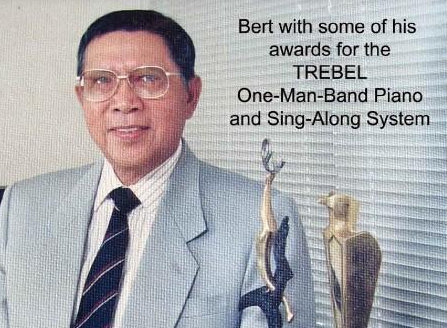Groundbreaking Filipino Inventors- that was the title I envisioned when I first got the idea to write this article. It was going to have examples of Pilipinos who drastically changed the world through their innovations with brief bios on each of them. Simple enough. Once I started researching, however, finding the facts became much more complicated than I imagined. The Mystery of the Moon Buggy
I decided to check out Eduardo San Juan, who was listed in multiple articles on famous Filipinos as the inventor of the Lunar Rover a.k.a. the Moon Buggy.
The first website I landed on read: “He was the project leader for NASA in the buggy development: An underfunded and underappreciated engineering success…The moon buggy allowed greater exploration of the Moon, yet Eduardo San Juan’s contribution has been relegated largely to status as a footnote.” (Miele, 2009)
I continued researching more on his background…and that’s when things got strange.
According to many sites, San Juan contributed to a multitude of important inventions, such as the Articulated Wheel System and the Intercontinental Ballistic Missile, and received one of the Ten Outstanding Men (TOM) awards in science and technology. He’s even lauded in Philippine textbooks as one of the most acclaimed scientists in the country.
Investigators on just as many a number of other sites, however, argue that the great Eduardo San Juan is but merely a myth. Some attest that although there was a man of that name that worked as a technician on the project, he was by no means its chief designer. Other accounts claim that there are no records connecting an Eduardo San Juan to the Lunar Rover at all. Then there’s this letter written by San Juan’s alleged daughter pleading to set the record of his life accomplishments straight, which curiously contains multiple inaccuracies.
Karaoke Crisis
A similar case emerged while I began researching the man who invented karaoke- a person whom I’ve been told countless times was, in fact, Pilipino. Several websites touted Roberto del Rosario as the original inventor of the karaoke machine who patented his “minus-one system” in 1975 and had his idea stolen by Japanese corporations. Many more, however, gave the crowning title to Daisuke Inoue, a Japanese musician who created the “Juke 8” machine in 1971, but never got a patent. Still, some Pilipinos defend that even though Inoue may have created the machine first, he never got a patent and therefore the invention is del Rosario’s by technicality.
In most accounts of the creation of karaoke del Rosario isn’t even mentioned, particularly if the source isn’t Pilipino. In 1999, Daisuke Inoue was recognized as one of TIME Magazine’s “Most Influential Asians of the Century” and was awarded the Ig Nobel Peace Prize in 2004. It’s clear in the eyes of the public who won out this round.
Battle of self-worth
The same wild goose chase for the truth tails the alleged Filipino inventor of the fluorescent lightbulb, Agapito Flores, and the supposed inventor of the Armalite or M-16, Agapito Flores Armando Literio.
So it comes down to a classic battle of one person’s word against another’s. Great inventors, just like Greek gods and war heroes, stand at the crossroads between legend and myth, where historical facts become blurred by different agendas. History is still a story, and whoever sells it best wins.
But of course, most people who aren’t trying to write articles on Pilipino inventors aren’t usually going to do this extent of research. Heck, even my research consisted of simply typing their names into Google and skimming through the first few pages that showed up in my search. Most people wouldn’t have the time, or the resources, or even care about who invented what. Most people do, however, enjoy their fun facts of the day, and will spread them as truth to whomever may care to listen.
So what does it really matter then, what’s real and what’s not? Stories will always be different depending on who’s telling and who’s listening. It all comes down to what we believe.
But I think that’s the important thing- it’s what we believe that’s the problem. We latch on to mythical legends because we as Pilipinos feel like we don’t have enough definite champions that can show the world our people can exceed its expectations.
These battles over who invented what are not merely frivolous obsessions over the past, they are battles to prove our legitimacy- the fight for our own self-worth.
Let’s not be lost. We as Pilipinos need to take hold of our own narratives and make them clear again. Let’s find the true living legends here and now and celebrate them loudly and proudly so that there is no doubt over what we bring to the table. By highlighting our real successes, we can debunk the sorry myth that Pilipinos are not born leaders and make the need to glorify lost legends unnecessary.
Photo credits: istorya.net, arnelpineda.ning.com


